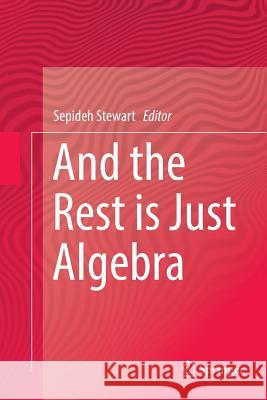And the Rest Is Just Algebra » książka
topmenu
And the Rest Is Just Algebra
ISBN-13: 9783319831985 / Angielski / Miękka / 2018 / 238 str.
Kategorie:
Kategorie BISAC:
Wydawca:
Springer
Język:
Angielski
ISBN-13:
9783319831985
Rok wydania:
2018
Wydanie:
Softcover Repri
Ilość stron:
238
Waga:
0.36 kg
Wymiary:
23.39 x 15.6 x 1.4
Oprawa:
Miękka
Wolumenów:
01
Dodatkowe informacje:
Wydanie ilustrowane











